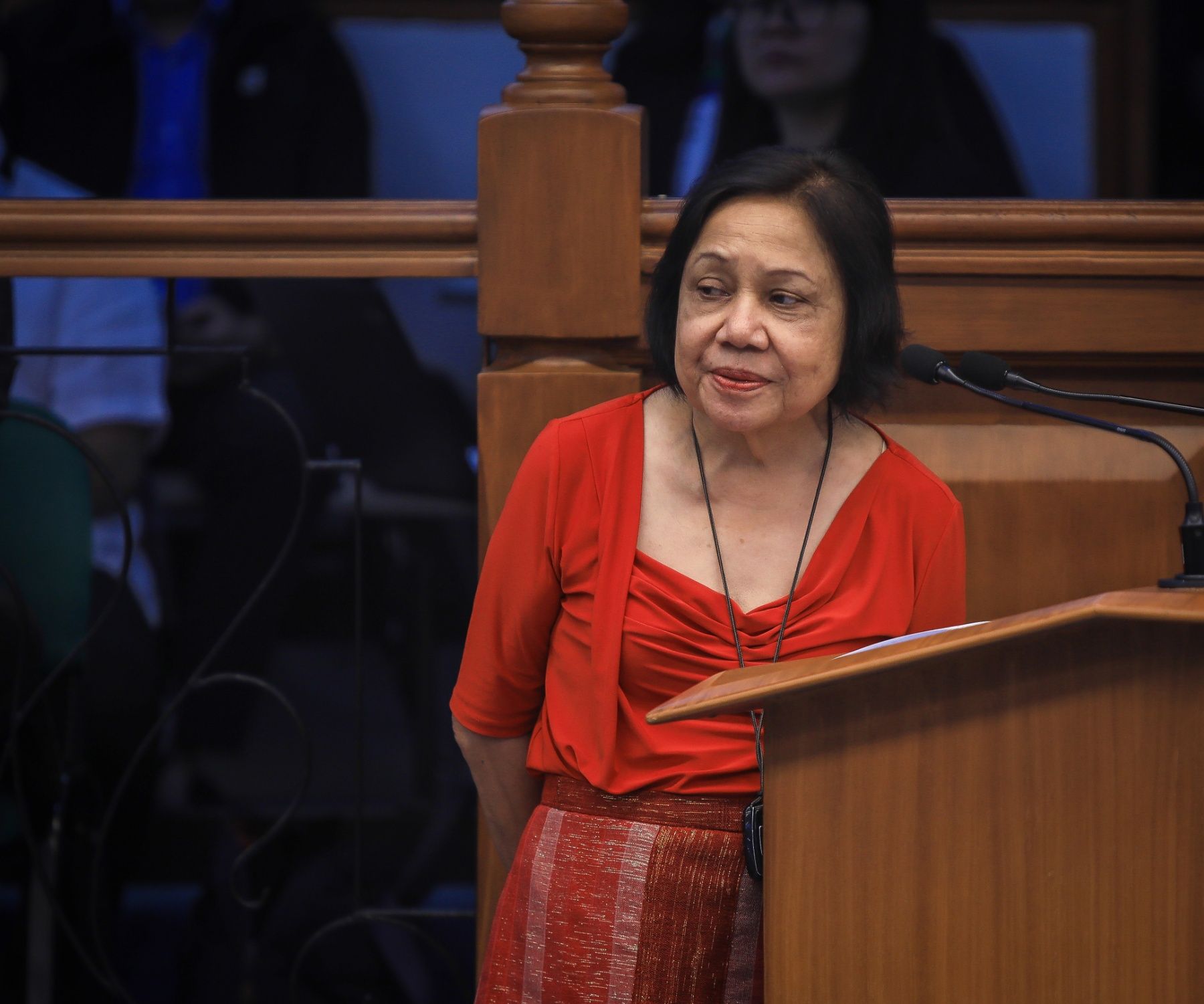Cynthia Villar opposes DHSUD's housing scheme; says it's for middle-class, not poor
By Dhel Nazario
Senator Cynthia Villar expressed her strong opposition to the Department of Human Settlements and Urban Development (DHSUD) plan to build condominiums as a means to resolve the housing backlog in the Philippines.

She mentioned this during the DHSUD budget deliberation for 2025 on Tuesday, November 12, 2024, arguing that condominiums may not be an affordable option for those in the lower income brackets.
“Why are you prioritizing the 3.2 million condominium units for the middle class when your mandate is to help the poor and the homeless? Why would you force the condominium to them when they cannot afford it? They should be given the option to buy land or the condominium,” Villar said.
Sen. Risa Hontiveros sponsored the DHSUD's 2025 budget amounting to P6.363-billion which constitutes approximately 3 percent of the total national budget.
Villar even pointed out that tricycle drivers, vendors, and other indigent Filipinos could not afford to pay P2,400 or P3,000 a month for their condominium unit.
"But now, they are prioritizing condominium, ang condominium mahal. It's for the middle-class, it's not for the poor. Tapos paalisin nila sa doon sa lupa ang poor lalagyan nila ng condominium, saan nila dadalhin 'yung poor? (They'll eventually evict them from the land and replace it with a condominium, where will they take the poor people then?)" she added.
The senator later asked the DHSUD secretary to manifest in writing that the poor and homeless would have an option to choose whether to pay for a condominium or join the Community Mortgage Program (CMP).
CMP refers to a housing finance program that helps low-income groups acquire and develop land. The CMP’s goal is to help residents of the disadvantaged sector own the land they live on or relocate to and to improve their neighborhoods and homes.
Hontiveros said the DHSUD 2025 budget is 2.5 percent higher than the 2024 budget of the department.
“There are 535 projects already underway, with an expected output of 1.2 million housing units at an estimated cost of P1.65-trillion,” Hontiveros said.
“The Pag-IBIG Fund plays a crucial role in the housing finance ecosystem, providing financing options for beneficiaries to purchase homes and supporting developers through its wholesale home lending program,” she added.
Hontiveros further highlighted the Pambansang Pabahay Para sa Pilipino Housing (4PH) Program of DHSUD which initially aimed to develop six million housing units by 2028, relying heavily on private sector investment.
However, this target was later revised down to 3.2 million units.